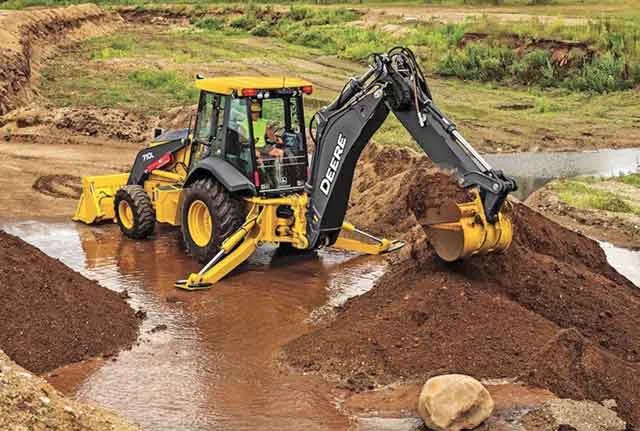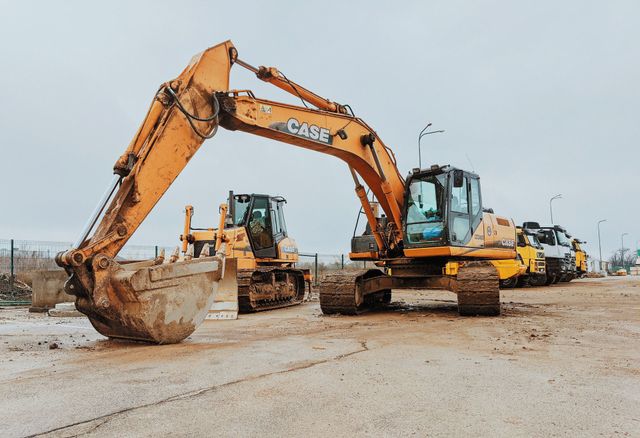Specialist Septic Ohio - Trusted Septic System Professionals in Ohio
Specialist Septic Ohio - Trusted Septic System Professionals in Ohio
Blog Article
Comprehensive Excavation Strategies: Grasping the Fundamentals for Success
In the realm of building and construction and civil engineering, the value of efficient excavation techniques can not be overstated. The mindful preparation, exact implementation, and meticulous focus to information needed in excavation projects demand a thorough method that includes different essential facets. From preliminary soil analysis to the application of precaution and normal progress surveillance, grasping these core components is important for accomplishing success in any type of excavation endeavor. Nonetheless, truth proficiency lies not just in recognizing these basics yet in effortlessly incorporating them to browse the intricacies of excavation projects with finesse.
Recognizing Excavation Project Preparation

The first stage of any excavation project is the preparation phase, where vital choices are made that can substantially affect the result of the project. Recognizing the job timeline, scope, and budget plan restraints is essential for developing a detailed excavation plan that makes sure the task's success.
One key element of excavation project preparation is the development of a detailed timeline that outlines the sequence of target dates, milestones, and tasks. By thoroughly taking into consideration all these factors during the preparation phase, excavation projects can be carried out efficiently and effectively, leading to effective end results - septic ohio.
Dirt Evaluation and Website Assessment
Conducting extensive dirt evaluation and site analysis is an essential action in the preparation phase of any type of excavation job. Dirt evaluation entails determining the structure, framework, and residential or commercial properties of the dirt at the excavation site. This information is important for recognizing the soil's bearing capability, dampness web content, and potential for erosion, which are crucial elements in establishing the excavation approaches and equipment needed for the job.
Website assessment exceeds dirt analysis and encompasses a broader analysis of the total website conditions. This examination consists of identifying any kind of potential threats, such as underground utilities, ecological issues, or unsteady surface, that could impact the excavation procedure. By extensively reviewing the website, job supervisors can establish efficient excavation strategies that focus on security, effectiveness, and ecological protection.
Utilizing innovative innovations like ground-penetrating radar, dirt tasting, and drone studies can enhance the precision and effectiveness of soil evaluation and website assessment. Spending time and sources in these initial steps can eventually conserve time and prevent pricey delays or difficulties during the excavation procedure.
Equipment Selection and Usage
Effective excavation projects depend heavily on calculated equipment choice and utilization to guarantee ideal efficiency and performance. Selecting the appropriate equipment more information for the task is vital in optimizing effectiveness and minimizing downtime. Aspects such as the type of soil, deepness of excavation, and project scope play a considerable role in establishing one of the most appropriate tools for the task available.

Along with picking the appropriate devices, proper usage is key to task success. Operators should be educated to manage the devices safely and efficiently - lancaster trenching. Regular maintenance checks and prompt repair work assist prevent breakdowns and make certain consistent performance throughout the task
Precaution and Laws Conformity
In why not look here the world of excavation jobs, prioritizing security actions and compliance with guidelines is extremely important to ensuring a legally sound and protected operational atmosphere. Safety and security steps encompass a range of practices, consisting of performing extensive site analyses, applying appropriate signs and barriers, and providing adequate safety and security training for all personnel associated with the excavation process. Adherence to guidelines, such as OSHA requirements in the United States, guarantees that the excavation task meets the required criteria to secure employees, onlookers, and the surrounding environment.

Surveillance Progression and Adjusting Techniques
Exactly how can predict managers efficiently track the advancement of excavation jobs and adjust their strategies appropriately to enhance end results? Tracking development is crucial for making sure that excavation jobs remain on track and meet target dates.

Final Thought
To conclude, mastering the basics of extensive excavation methods is important for the success of any project. By comprehending task planning, examining dirt and website conditions, picking ideal equipment, following safety policies, and checking development, job managers can ensure a smooth and effective excavation process. Carrying out these methods will certainly lead to successful outcomes and minimize possible threats or setbacks during the excavation job.
The preliminary phase of any type of excavation job is the planning phase, where essential choices are made that can dramatically affect the end result of the project. Comprehending the project range, budget plan, and timeline restraints is vital for producing a thorough excavation plan that makes certain the project's success.
Exactly how can forecast managers effectively track the innovation of excavation tasks and adapt their techniques as necessary to optimize results? By very closely monitoring progress and being ready to adjust methods, project supervisors can improve the total success of excavation jobs.
By understanding job preparation, examining soil and website problems, picking appropriate tools, conforming with safety policies, and checking progress, job supervisors can make sure a smooth and reliable excavation process.
Report this page